Cost of living crisis: how will Russia-Ukraine war impact the price of energy, fuel and food in the UK?
This article contains affiliate links. We may earn a small commission on items purchased through this article, but that does not affect our editorial judgement.
and live on Freeview channel 276
Even before Russia’s invasion of Ukraine, the UK was in the grip of a deepening cost of living crisis.
Food prices and energy bills have risen as inflation has rocketed to 30-year highs, with more pain for households set to come in April when the energy price cap is raised.
Advertisement
Hide AdAdvertisement
Hide AdA new report from think tank The Resolution Foundation estimates an average household’s income will fall by about £1,000 in real terms in 2022 due to inflation - the biggest drop since the 1970s.
President Vladimir Putin’s so-called ‘special military operation’ in Ukraine has already added further fuel to rocketing energy, fuel and food prices here in the UK.
So how exactly has the invasion impacted the cost of living in the UK - and is worse still to come?
Here’s what you need to know.
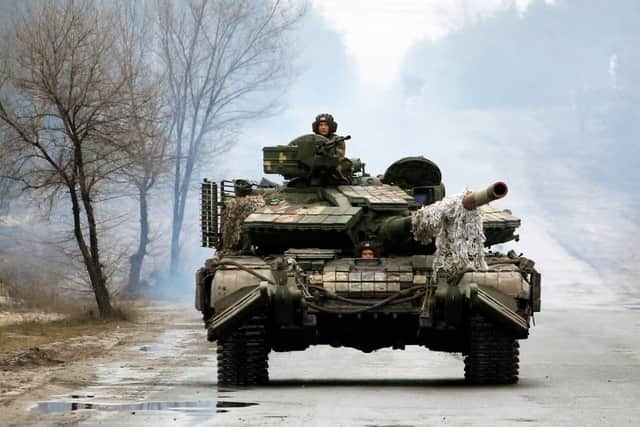

What will Russia-Ukraine mean for energy prices?
The UK was already facing increased energy costs as a result of global supply challenges over the past 18 months.
Advertisement
Hide AdAdvertisement
Hide AdThe price of wholesale energy increased so sharply in the autumn and early winter that many smaller suppliers went bust.
It forced Ofgem to raise the energy price cap by more than 50% to £1,971 from April.
But now there are warnings the price cap might have to rise again to £3,000 when it is next due to be reviewed for October.
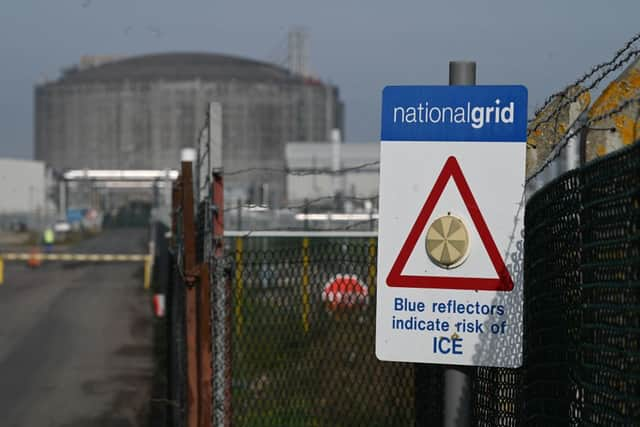

This is because Russia is the world’s second-biggest producer and largest exporter of natural gas.
Advertisement
Hide AdAdvertisement
Hide AdSo, any move by Russia to turn off its gas pipelines or any new energy sanctions from the West would be likely to push energy prices up for UK households.
This could take place regardless of the fact the UK does not import much Russian gas, as the implications would be felt on global energy markets.
Gas prices have already risen in response to the war in Ukraine, and are now more than 20 times higher than they were two years ago.
The Government announced a package of support for UK households before the invasion, which could reportedly become more generous in light of the Ukraine crisis.
Advertisement
Hide AdAdvertisement
Hide AdIn a bid to shield the UK from future energy crises, the Government is also rumoured to be exploring how to boost North Sea oil and gas production, cheap renewables and nuclear power.
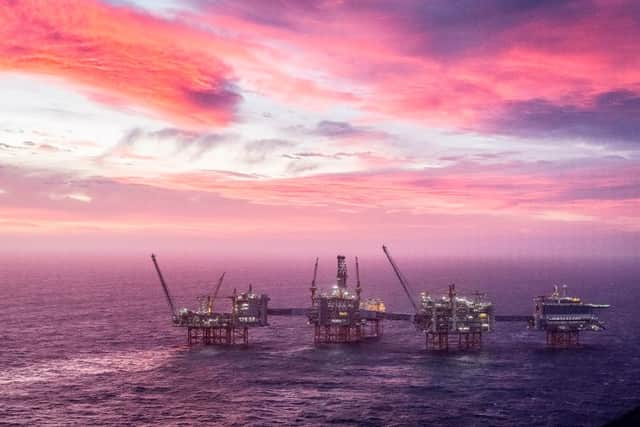

Some Conservative MPs have also called on the Government to expand North Sea oil and gas production, while campaigners Greenpeace have urged for more investment in renewables.
Thus far, the Government appears to have opted for the North Sea option and is reported by The Times to be on the verge of granting the first oil and gas exploration licences since 2019.
But these are unlikely to lead to new production for what could be 28 years, according to Greenpeace.
Advertisement
Hide AdAdvertisement
Hide AdThe PA news agency has also reported ministers are considering whether to give fracking the green light in order to make the UK more self-sufficient in terms of natural gas.
How will Russia-Ukraine affect fuel pump prices?
Oil costs were already high as demand has been outstripping supply since economies came back online following Covid shutdowns.
But they could be set to go higher still as a result of Russia’s invasion of Ukraine.
Consumers have already been hit at the petrol pump, as prices have broken the £1.55 barrier and are continuing to rise, with the RAC Foundation predicting they could soon hit £1.65 per litre.
Advertisement
Hide AdAdvertisement
Hide AdThis is due to the UK, US and Canada Russian oil import ban, speculation more countries could join in on these sanctions and threats from Russia that it will turn its oil and gas taps off.
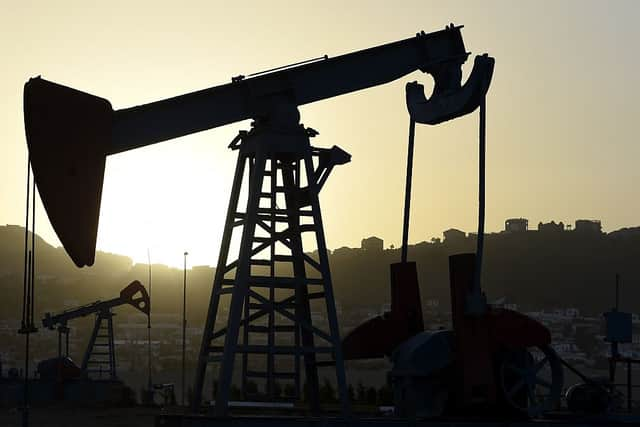

Even though the UK has little direct connection with Russian oil, it could be hit by even higher global oil market prices if more countries join in with the latest sanctions.
This is because Russia is the world’s third largest individual producer of oil, responsible for around 11% of global output, and continental European countries like Germany and France are heavily reliant on it.
Russia’s deputy-prime minister Alexander Novak said the price per barrel of Brent crude oil - a key yardstick for global markets - could hit $300 should the Western world introduce import bans on Russian oil.
It’s a figure which could be designed to spook the West.
Advertisement
Hide AdAdvertisement
Hide AdBut whatever happens, it seems likely more record prices are set to come at petrol pumps.
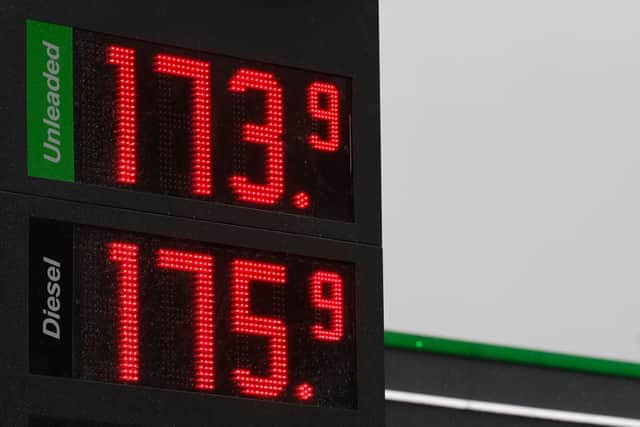

The Government says it is mitigating price increases by keeping fuel duty frozen.
However, it has been urged to go further by road user organisations.
FairFuelUK wants to see fuel duty cut back by at least 5p per litre, while the Road Haulage Association (RHA) wants to see rebates for essential road users, like lorry drivers, of 15p per litre.
Advertisement
Hide AdAdvertisement
Hide AdImpact of Russia-Ukraine on food prices
The conflict in Ukraine looks set to increase the cost of many food and drink items.
Both Russia and Ukraine are major producers of grain, while Ukraine is also a key producer of rapeseed oil and sunflower oil.
The sanctions on Russia means its grain exports look set to be limited.
And Ukraine’s ability to export anything has also been all but halted as its Black Sea ports have closed and will remain as such until Russian forces withdraw.
Advertisement
Hide AdAdvertisement
Hide AdGrain markets have already gone up as a result, with benchmark Chicago wheat futures soaring 40.6% in price over the course of last week, and another yardstick - Paris milling wheat - rising 28.3%.
It means the price of products, such as bread and pasta, could be set to rise.
Pasta prices have already risen sharply as a result of poor wheat harvests in Canada last year, with the ONS recording a 26% increase in December 2021 alone.
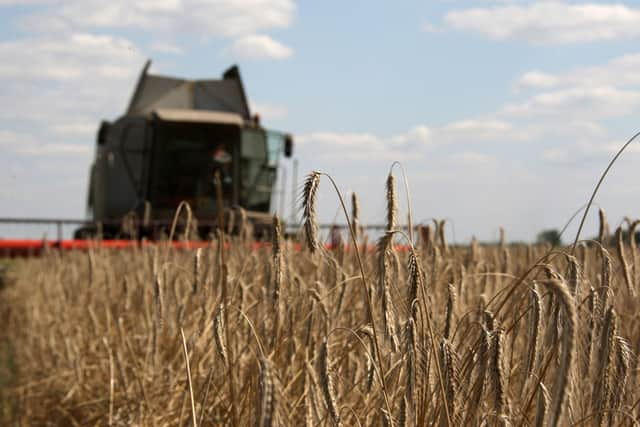

Cost increases could also be expected for products containing rapeseed and sunflower oils, which are key ingredients in everything from butters and spreads to sauces like mayonnaise.
Advertisement
Hide AdAdvertisement
Hide AdFood production inputs, like animal feed and fertiliser, also look set to become more expensive and less readily available as a result of the invasion given Russia exports many key raw materials, such as potash for fertiliser production.
It means the price of fresh British meat, fruit and veg could go up and its availability could be compromised.
If fertiliser manufacturing is compromised, there might also be more issues with CO2 gas production - something which could affect everything from the bubbles in your beer to the shelf-life of meat products.
A message from the editor:
Thank you for reading. NationalWorld is a new national news brand, produced by a team of journalists, editors, video producers and designers who live and work across the UK. Find out more about who’s who in the team, and our editorial values. We want to start a community among our readers, so please follow us on Facebook, Twitter and Instagram, and keep the conversation going. You can also sign up to our email newsletters and get a curated selection of our best reads to your inbox every day.
Comment Guidelines
National World encourages reader discussion on our stories. User feedback, insights and back-and-forth exchanges add a rich layer of context to reporting. Please review our Community Guidelines before commenting.
